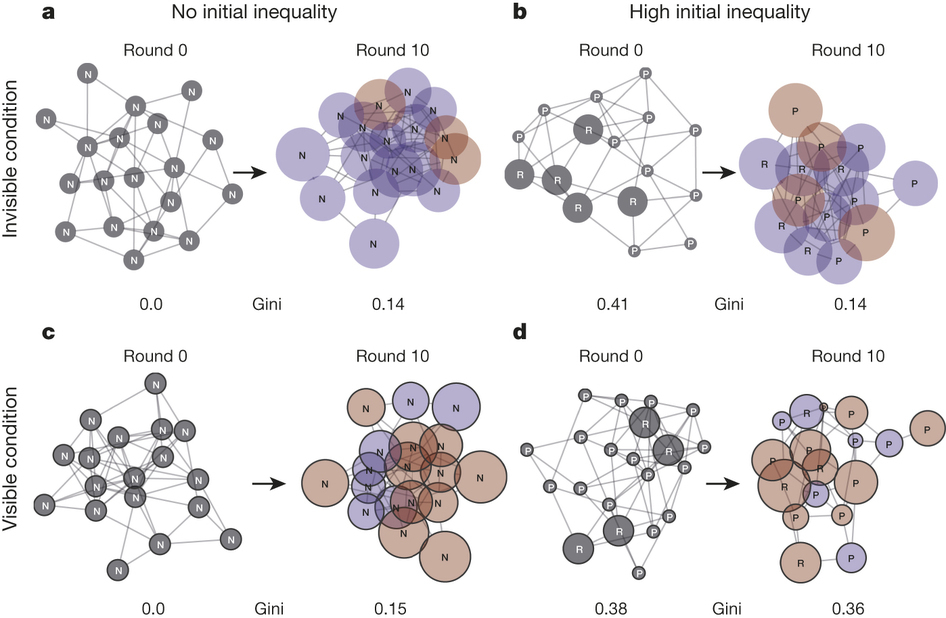
Inequality and Visibility of Wealth in Experimental Social Networks (Nature, 2015)
Abstract
Humans prefer relatively equal distributions of resources 1–5, yet societies have varying degrees of economic inequality. To investigate some of the possible determinants and consequences of inequality, here we perform experiments involving a networked public goods game in which subjects interact and gain or lose wealth. Subjects (n 5 1,462) were randomly assigned to have higher or lower initial endowments, and were embedded within social networks with three levels of economic inequality (Gini coefficient 0.0, 0.2, and 0.4). In addition, we manipulated the visibility of the wealth of network neighbours. We show that wealth visibility facilitates the downstream consequences of initial inequality—in initially more unequal situations, wealth visibility leads to greater inequality than when wealth is invisible. This result reflects a heterogeneous response to visibility in richer versus poorer subjects. We also find that making wealth visible has adverse welfare consequences, yielding lower levels of overall cooperation, inter-connectedness, and wealth. High initial levels of economic inequality alone, however, have relatively few deleterious welfare effects.
Citation:
A. Nishi, H. Shirado, D.G. Rand, and N.A. Christakis, "Inequality and Visibility of Wealth in Experimental Social Networks" Nature, Published online 09 September 2015. doi:10.1038/nature15392